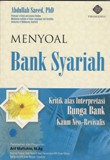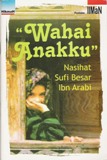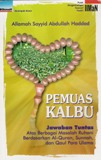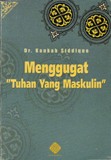A couples weeks ago, I was shopping books required for this quarter at the University Book Store, this book was one of two books that I had not bought yet. Firstly, because the title was not interesting for me (“It would talk about guns, germ, and steel? What is their relevance to the origin of global system” I said in my mind); and secondly, the used book of this title was not available.
So, the way I bought the book was like buying “a last minute ticket” from an airline company (buying without full expecting to leave, but also at a low price).
Those impressions finally disappear as I bought and read the introduction of the book. Jared Diamond, in his introduction, even though not really convinced me on his arguments, has successfully convinced me to read and to keep the book in my personal library. His style of writing is fluid and laid-back, makes the reader read the history not as necessarily story of the past, but somewhat story of our daily life (he begins with Yali’s question that is similar to my Indonesian friend’s question, “Arif, why Americans so developed and we are not?” ).
Diamond posed many puzzling questions, which invite the reader to read line by line of his book, sometime without giving the answer.
Guns, Germ, and Steel
Answering Yali’s question, on the contrast life’s style of white Europeans and the New Guineans, the author refers firstly to existing ways to answer the question. The first way to answer is assuming biological differences, i.e., innate ability. Technologically primitive people were considered, under Darwinian perspective, as evolutionary vestiges human decent from apelike ancestors. The displacement of such people by sophisticated societies imply only the law of survival of the fittest. Genetically, by recent rise of genetics, European is also considered more intelligent than Africans and other backward societies. Diamond says that such racist answer is not only loathsome, but also wrong. People of a somewhat “backward” society, as they learned it, master it better than white people do.
The second popular answer refers to climatologically reasons. Because people in Europe live with severe climate, they are forced to be creative, to invent more tools to survive, while people of friendly climate are not forced to do so. Although this explanation is based on some anthropological findings, other anthropological findings also show what in reverse.
The third answer lists the immediate factors that enable Europeans to conquer other people: those are European guns, infectious diseases, steel tool, and manufactured products. Diamond is in the same line with this argument. From this point, he tries to give explanation for what he considers as a proximate explanation. In short, as the title implies it, guns, germs, and steel become the key argument to explain discrepancy among different parts of the world.
To elaborate this argument, he explains what happen along thousands years of human history. From Africa, human begin their evolution and then spread around the world, to Eurasia and other part of the world. To make his point quickly, he only spent 20 pages for this long part of history.
Then he starts to explain his points in Cajamarca, the place of the meeting between the Spanish conquistador Pizarro and the Inca Atahuallpa in 1532. This is a contrast meeting between to completely different worlds and resulted in Pizarro's victory, despite a numerical disadvantage, and the capture of Atahuallpa. The proximate causes of this were germs, technology (guns and steel weapons, ships), domestic animals (horses), and writing.
Underlying these immediate causes, however, is what Diamond sees as the central key to understanding human history — food production, or the domestication of plants and animals. In an excellent summary, Diamond explores the origins of agriculture. He describes where and when food production originated, how it spread with demographic expansion and by emulation, and why it never took off in some regions. He also mentions some new job division resulted by this food production and storage: including bureaucrats, religious leader, and other social positions.
We can not deny his argument on the importance of those three immediate factors in the human history. But, making those as the sole argument is neglecting something that move human civilization along the history: religion.
Religion always play an important role in the human history. If we considers old temples in Indonesia, Maya, Inca, Egypt, India, Cambodia, and other parts of the world, will find how religion influence people life. Islamic civilization, the first global civilization that scratched from Spain in the west edge of the “old world” through Indonesian islands in its east edge, is based on religion.
The almost enduring crusade, the real clash of civilization, between West and East, also provide another proof how religion in those respective civilization become source of power to defeat each other.
We can also find this argument in the book, on the scene of meeting between Pizzaro and Atahuallpa. Along the reports written by eyewitnesses, we find so many religious vocabularies. It is the bible that fire up the collision. Thus, why Diamond only mentions religion as the justification of conquer and war?
I think, it was religion that made Europeans leaved Europe and explored the new world, to preach their religion to another world. Hence, he needs to add -- beside of guns, germ, and steel -- God here. It does not necessarily mean that God intervenes the course of history, but the very concept of God and its implication to human history is very important: whether we believe it or not, but many people in the history believe it and are motivated by it. Don’t we need to consider recent changes in the world caused by actions of view “religious” men related to 911 attack (the terrorist who act in the name of God, and also Bush who reacts in the same Name)?
thematic category
Monday, September 26, 2005
Unanswered Question in Guns, Germ, and Steel
Posted by Arif Maftuhin at 10:29 PM
Subscribe to:
Post Comments (Atom)










0 comments:
Post a Comment